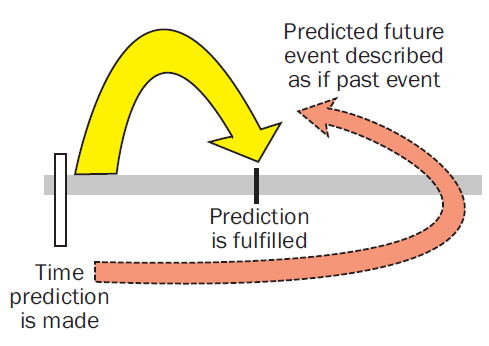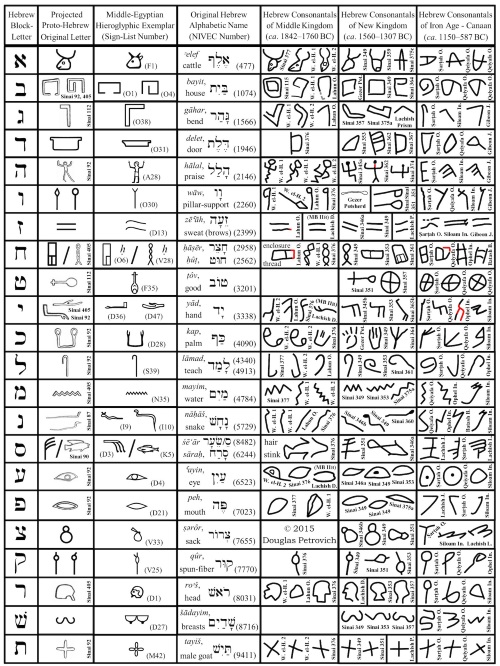David Kimhi: "The matter is as clear as though it had already passed,"
[3] or Isaac ben Yedaiah:
"[The rabbis] of blessed memory followed, in these words of theirs, in the paths of the prophets who speak of something which will happen in the future in the language of the past. Since they saw in prophetic vision that which was to occur in the future, they spoke about it in the past tense and testified firmly that it had happened, to teach the certainty of his [God's] words -- may he be blessed -- and his positive promise that can never change and his beneficent message that will not be altered." (Isaac ben Yedaiah):
Gesenius describes it as follows:
"The perfect serves to express actions, events, or states, which the speaker wishes to represent from the point of view of completion, whether they belong to a determinate past time, or extend into the present,
or while still future, are pictured as in their completed state." (GKC §106a)
[5]
"[The perfect can be used to] express facts which are undoubtedly imminent, and, therefore, in the imagination of the speaker, already accomplished (perfectum confidentiae), e.g. Nu 17:27... Gn 30:13, 1 S 6:5 ..., Pr 4:2. Even in interrogative sentences, Gn 18:12, Nu 17:28, 23:10, Ju 9:9, 11, Zc 4:10 (?), Pr 22:20.8 This use of the perfect occurs most frequently in prophetic language (perfectum propheticum). The prophet so transports himself in imagination into the future that he describes the future event as if it had been already seen or heard by him, e.g. Is 5:13 ...; 19:7, Jb 5:20, 2 Ch 20:37. Not infrequently the imperfect interchanges with such perfects either in the parallel member or further on in the narrative." (GKC §106n)

en.wikipedia.org




